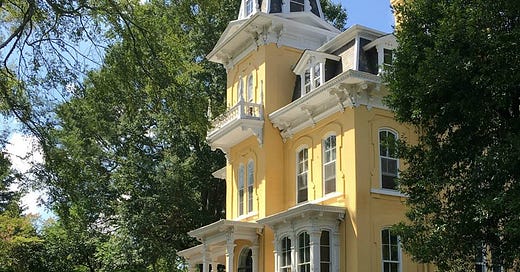This is the seventh installment in my series on historic preservation, The Grassroots Guide To Saving What Matters
If you are the owner of a historic structure, you are already well aware that it was here long before you ever came along, and will likely be here long after you are gone. That is, at least, the hope.
But what about that? Is your old house a survivor only because of good luck, or is it here because someone cared enough to ensure its survival via legal means of protection? The question strikes at the very heart of historic preservation, yet I continue to be amazed at the number of well-meaning and knowledgeable homeowners who have never given the matter much thought.
They care deeply about their home, can tell you all the ins and outs of its story, have bent over backward to maintain and faithfully rehabilitate it at every juncture, but many of them simply assume or hope that the next steward of their property will feel and act the same.
Familiar refrains often heard are: “My family has maintained this place for five generations. We will never sell it. My children and grandchildren will see to that.”, or, “The house is on the National Register. We made sure to take care of that. The future is secure.”, or, “The house is a historic icon. Who in their right mind would want to harm it?”, or “We’re going to donate this house and grounds to the county after we are gone.”
These sentiments are not unreasonable, but they frequently do not hold as much water as homeowners might hope. Squabbles among surviving children are more the rule than the exception. Heirs who inherit a house sometimes turn out not to care as much as their parents did. In both cases, an old house can and often does end up the victim. National Register designation is a nice first step, but holds virtually no protection, as we have already seen in this series. Assuming the good will of a community toward a historic structure is also a thin limb upon which to extend one’s hopes. There are indeed those “in their right mind” who would think nothing of demolition if the circumstance was conducive. And, finally, donating to a government sometimes is the equivalent of unlocking the hen-house door and posting a sign, “Welcome Foxes”. Boards of commissioners and town councils change every few years, as do zoning laws and development ordinances, as do the sizes of county budgets, as do political winds, and the list of perils goes on. In other words, none of these assumptions about the secure future of an old house is a safe bet.
Then again, you may be among those whose answer is “I know the pitfalls and I worry about what will become of this place after I’m gone.” If so, this post is for you.




